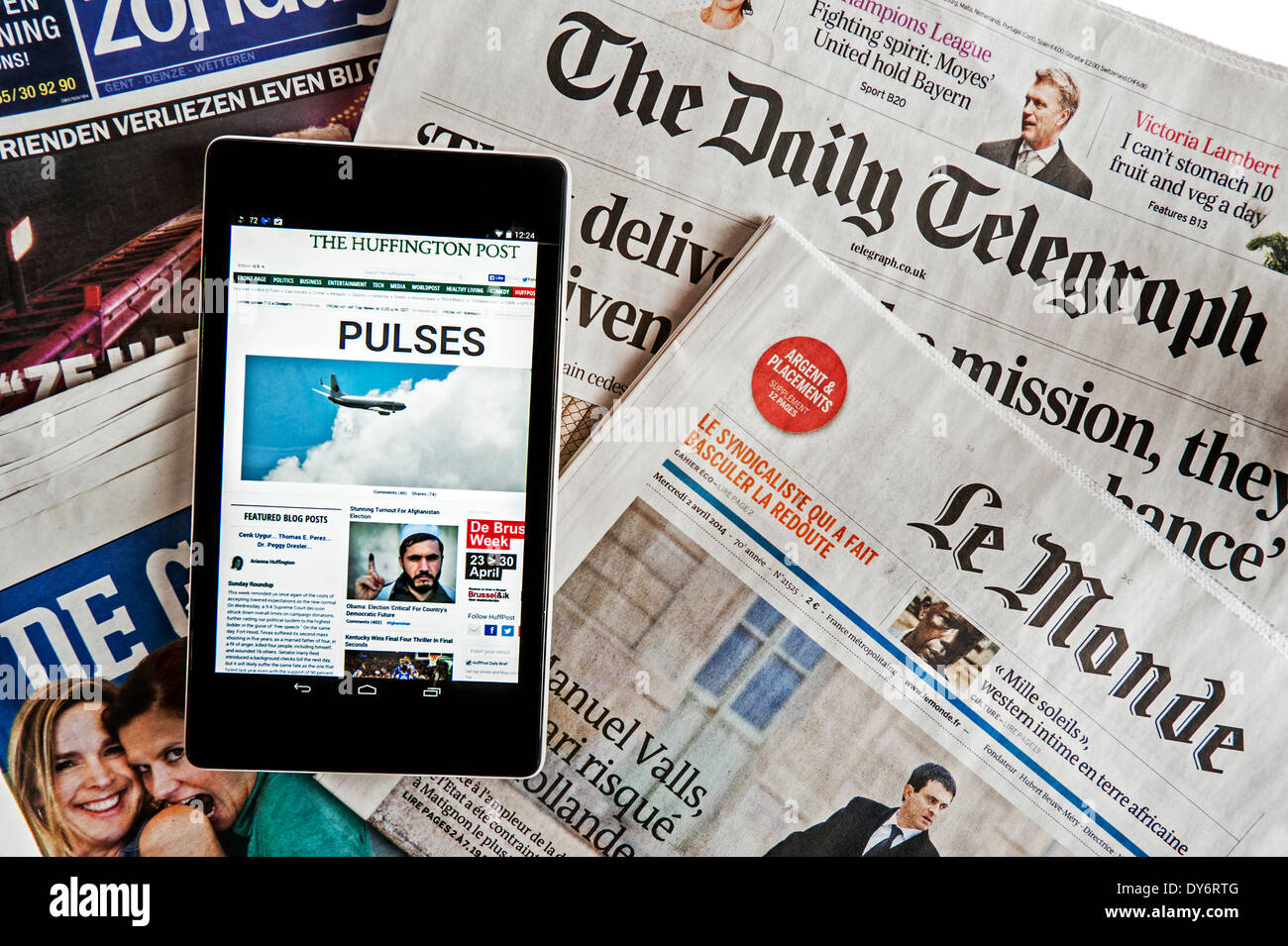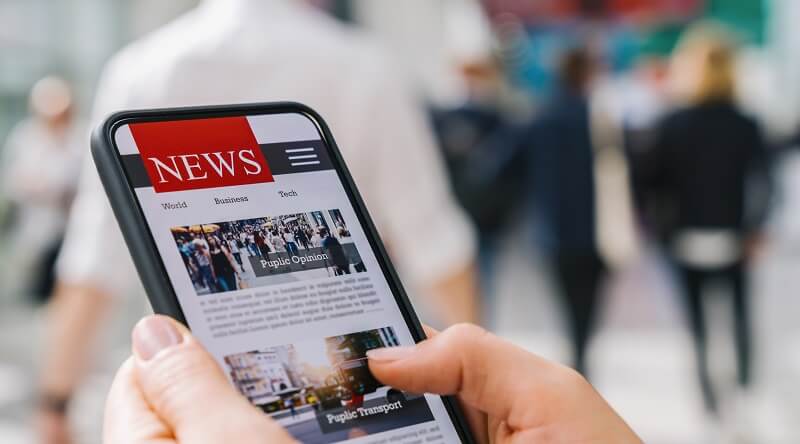7 Underrated Features of stnews.live You’ll Love
Wiki Article
The Value of Fact-Checking on the planet of News Online
The occurrence of misinformation in today's online news landscape has actually gotten to alarming levels. Fact-checking organizations play an important function in combating this fad. They validate claims and enhance the reputation of journalism. Nonetheless, the effectiveness of these companies often pivots on their techniques and public perception. As audiences browse this complicated setting, the implications of their findings might shape the future of news usage and trust fund. What does this mean for the honesty of details progressing?
The Increase of False Information in the Digital Age
How has the development of digital modern technology added to the spread of false information? The fast growth of the internet and social media systems has actually facilitated the circulation of details at an unprecedented rate. Customers can share articles, video clips, and point of views with a simple click, frequently without verifying the web content's accuracy. Formulas prioritize mind-blowing or emotionally charged product, causing a spreading of misleading narratives that catch interest.Additionally, the anonymity managed by digital systems allows people to spread false details without liability (stnews.live). Misinformation grows in resemble chambers, where customers are exposed mainly to point of views that enhance their ideas, additionally setting falsehoods. The saturation of info can bewilder customers, making it testing to discern trustworthy sources from unstable ones. Subsequently, false information has come to be a pervasive concern in the digital landscape, affecting public point of view and count on reputable news resources
The Function of Fact-Checking Organizations
Fact-checking organizations play an essential function in improving the reputation of journalism by confirming insurance claims made in report. Their efforts are important in combating misinformation, making certain that accurate info prevails in the digital landscape. By holding media electrical outlets answerable, these organizations add substantially to informed public discourse.Enhancing Reliability in Journalism
While misinformation multiplies in the electronic age, fact-checking companies play a vital function in enhancing the credibility of journalism. These organizations carefully verify cases made in newspaper article, public declarations, and social media sites blog posts, making sure that info shared to the general public is exact and trustworthy. By offering independent assessments, they serve as a crucial source for reporters, helping them preserve high standards of integrity. Furthermore, their initiatives promote openness in media, cultivating public count on. As target markets come to be significantly critical, the presence of respectable fact-checking entities can differentiate trusted news resources from those that might spread frauds. Eventually, the commitment of fact-checking organizations to copyright reliability is important for the health and wellness of autonomous discourse.Combating False Information Efficiently
As misinformation remains to spread rapidly across digital systems, the role of fact-checking organizations becomes significantly critical in the battle for exact info. These organizations work as watchdogs, inspecting cases made by somebodies and media electrical outlets to ensure responsibility. By employing extensive study techniques and expert analysis, they verify truths and make clear deceptive stories. Their searchings for are disseminated via various networks, educating the general public and fostering crucial thinking. On top of that, collaborations with social media platforms boost their reach, allowing for prompt flagging of incorrect information. As digital literacy expands, the influence of fact-checking organizations is necessary in equipping audiences to recognize truth from fraud, ultimately contributing to an extra informed society.Just How Misinformation Affects Public Assumption
False information significantly threatens rely on media, leading audiences to wonder about the reliability of news resources. Because of this, people commonly move in the direction of outlets that reinforce their existing beliefs, adding to the polarization of viewpoints. This dynamic produces a fragmented info landscape, where shared comprehending comes to be increasingly hard to achieve.Trust in Media

Count on media has actually become increasingly breakable in the electronic age, where the quick spread of false information can skew public understanding. As false information proliferates throughout social media and on-line systems, audiences typically locate it testing to determine legitimate sources from unreliable ones. This unpredictability fosters uncertainty, leading numerous individuals to question the objectives behind news coverage. As a result, rely on developed media electrical outlets has actually go to website decreased, as consumers progressively transform to different resources that may do not have extensive content requirements. This disintegration of count on not only influences private beliefs but additionally undermines the cumulative capacity to involve in informed conversations. Inevitably, the stability of journalism goes to stake, highlighting the vital demand for effective fact-checking to restore self-confidence in the media landscape.

Polarization of Point of views
The boosting skepticism towards conventional media has actually contributed to an expanding polarization of viewpoints amongst the public. Misinformation, frequently distributed through social networks and online platforms, plays a considerable duty fit distinct ideological divides. People often look for out information that straightens with their pre-existing beliefs, enhancing their viewpoints while disregarding opposing perspectives. This resemble chamber result intensifies divisions, resulting in a fragmented public discourse where agreement becomes progressively evasive. Additionally, sensationalized stories flourish in this environment, further skewing public assumption and cultivating wonder about in legitimate sources. As polarization intensifies, the necessity for efficient fact-checking becomes critical to bridge spaces and advertise notified conversations, eventually ensuring an extra cohesive culture efficient in navigating complicated problems.Strategies for Efficient Fact-Checking
Effective fact-checking counts on a methodical method that includes thorough study, verification of resources, and essential analysis of insurance claims. A foundational strategy is cross-referencing info from several credible resources to confirm its accuracy. Fact-checkers frequently make use of specialized data sources and archives to trace the beginning of specific declarations, guaranteeing that the reported details aligns with documented proof.An additional necessary technique entails looking at the context in which claims are presented. Deceptive information can arise from out-of-context quotations or selective information use. By checking out the wider story, fact-checkers can identify potential predispositions or misinterpretations.
Involving with specialists in relevant areas can offer clearness and understanding that boosts the fact-checking procedure. This collaboration can uncover subtleties that laypeople might overlook - stnews.live. Ultimately, a disciplined method integrating these techniques fosters a much more informed public, enhancing the reliability of details distributed in the electronic age
The Influence of Social Network on News Usage
Just how has social media transformed the method people eat news? The development of platforms like Facebook, Twitter, and Instagram has significantly transformed news intake patterns. News is now disseminated rapidly, enabling individuals to accessibility real-time updates and involve with material with sort, shares, and comments. This immediacy has promoted a choice for bite-sized details, often at the expense of extensive evaluation.Social media makes it possible for personalized news feeds, where formulas curate material based on customer choices, developing echo chambers that may limit exposure to diverse perspectives. The duty of standard news electrical outlets has reduced as people progressively rely on peer referrals and trending subjects. Consequently, the reputation of info is commonly jeopardized, as sensationalism can you could look here overshadow valid coverage. Generally, social media sites has improved news usage, emphasizing speed and personalization while testing the requirements of journalistic stability.
Empowering Target Markets to Recognize Trustworthy Sources

Furthermore, taking a look at the authorship and business history of news write-ups can disclose possible biases. Cross-referencing info across several credible outlets further boosts the confirmation process. Utilizing electronic tools, such as browser expansions that rate the reputation of internet sites, can also assist in identifying reliable info. By proactively involving with these sources and growing an important state of mind, audiences can much better equip themselves to recognize reputable news sources, eventually fostering a much more educated society amidst the complexities these days's media setting.
The Future of Journalism and Fact-Checking
As the media landscape advances, the future of find out here journalism and fact-checking deals with both tests and possibilities. The increase of electronic platforms has actually democratized details dissemination, enabling varied voices to emerge. Nonetheless, this has actually likewise caused the spreading of false information, demanding durable fact-checking devices. Journalists will significantly depend on technology, including AI devices, to verify facts swiftly and successfully.Cooperation in between wire service and fact-checking entities is prepared for to enhance reputation and openness. In addition, target market engagement will certainly play a vital duty, as educated readers become significant partners in determining credible material.
The need for liability and precision is most likely to grow, pressing reporters to promote high criteria in their coverage. Inevitably, the future of journalism might pivot on its capacity to adjust to technological innovations while keeping journalistic honesty, making sure that fact-checking continues to be a foundation of qualified news.
Often Asked Questions
How Can I Report Misinformation I Experience Online?
To report false information experienced online, people can use platform-specific reporting tools, offer clear evidence, and share the information with fact-checking organizations. Involving with neighborhood discussions can additionally help raise recognition regarding the false information.What Prevail Signs of Misinformation in News Articles?
Usual indications of misinformation in newspaper article include sensational headings, lack of reliable resources, emotional language, inconsistent facts, and lack of author credentials. Readers should seriously assess web content for these indications to discern precision.Just How Do Fact-Checkers Verify Sources?
Fact-checkers verify sources by cross-referencing info with credible databases, seeking advice from specialists, and checking out the initial context of claims. They likewise evaluate the integrity of the sources, making certain precise and reliable information for public intake.What Legal Activities Can Be Taken Versus False information?
Legal activities against false information may consist of disparagement lawsuits, cease-and-desist orders, and regulatory charges. Victims can prosecute with civil courts, while some territories enforce fines or permissions on platforms distributing false details.Exist Apps for Fact-Checking News On-The-Go?
Countless apps exist for fact-checking news on-the-go, including Snopes, FactCheck.org, and PolitiFact. These applications help users validate claims swiftly, advertising educated decision-making and fostering a more critical method to consuming news in real-time.Report this wiki page